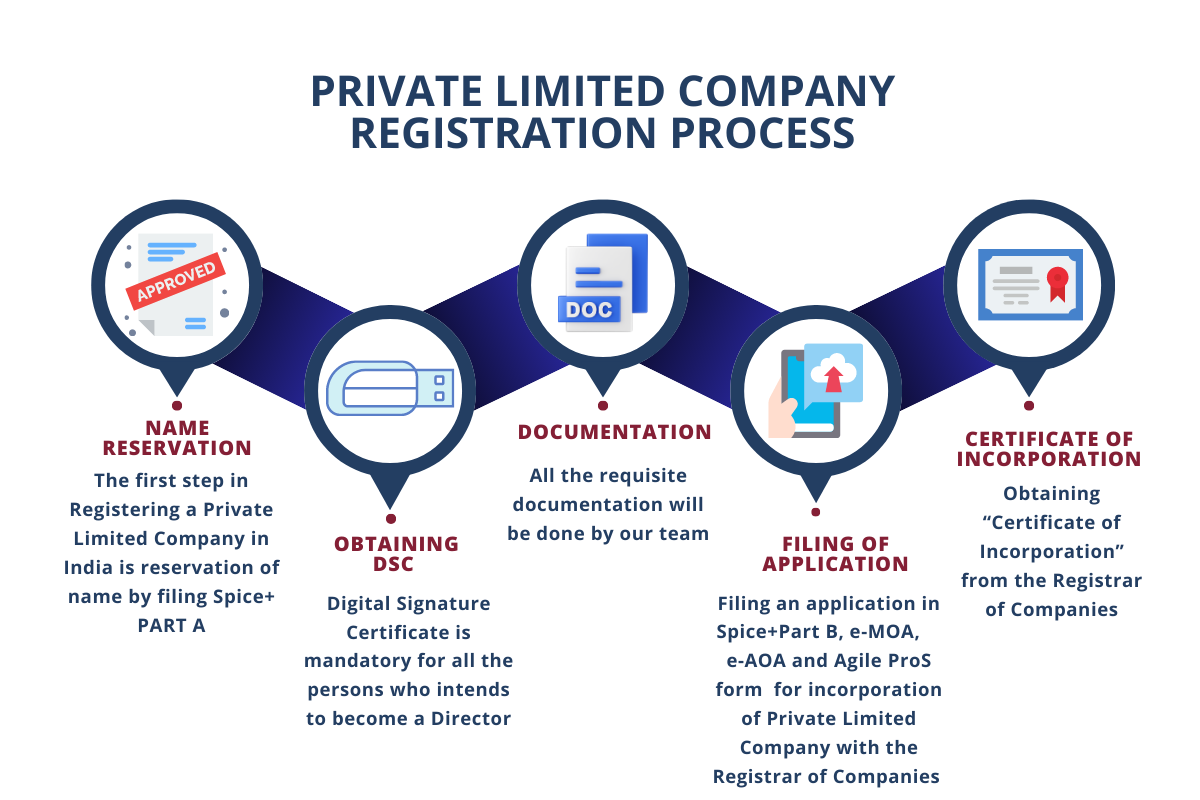

What Is Audit?
“Audit” means to examine something thoroughly. Auditing is an independent inspection of the financial information of any organization; whether profit-oriented or not profit-oriented, irrespective of its legal form, status or size when such examination is conducted with a view to express an opinion thereof”.
Need For Company Audit
Auditing of book of accounts means verification of accounts by an independent professional to ensure that the accounting has been carried as per the relevant regulatory requirements and to check the veracity of transactions and make an opinion whether the books of Accounts shows a true and fair view of financial transactions by the business.
A limited company has to close its accounts every financial year and prepare the financial statements prepared as per the books of accounts depicting true and fair view of the affairs of the company. The financials shall then be audited by the statutory auditor and has to be placed before the members for approval.
Every company has to get its accounts audited by its Statutory Auditor irrespective of size and turnover and file the same with the Registrar of Companies.
The Companies Act 2013 mandates every company to keep its books of accounts and other relevant books and papers and financial statement giving a true and fair view on accrual basis and as per double entry system which shall be maintained at the registered office of the company for every financial year. However, the board of directors may keep the books of accounts at any other place in India after filing a notice with the Registrar of Companies.
Who Can Become Auditor Of A Company
The audit of a company shall be carried out by the Statutory Auditor appointed by the company in its Annual General Meeting. A Chartered Accountant who holds a valid certificate of practice under Chartered Accountants Act, 1949 can only become an auditor of the company. Also, the company can appoint a firm as its auditor if majority of partners are practising in India and are eligible for appointment. Further, only those partners who are chartered accountant shall be allowed to sign on behalf of such a firm.
Appointment Of First Auditor By A Company.
The first auditor of a company shall be appointed within 30 days from the date of incorporation of the company by the board of directors. If the Board fails to appoint one, the members of the company have to appoint the first auditor at an Extraordinary General Meeting 120 days from the date of incorporation.
Appointment Of Auditor At AGM Of Company.
The statutory auditor shall be appointed at an AGM by the members of the company who shall hold office for 5 five consecutive years unless removed or the auditor resigns himself.
Rotation Of Auditors
The appointment of auditors at AGM is for a period of 5 years. Rotation of Auditors are applicable for companies that comes under the categories:
- Listed Companies
- Unlisted Public Company having paid up share capital of rupees 10 crores or more;
- Private limited companies having paid up share capital of rupees 50 crore or more;
- Unlisted public company and Private company having public borrowings from financial institutions, banks or public deposits of rupees 50 crore or more.
Rotation of Auditors are not applicable to One Person Company (OPC) and Small Companies. That means, OPC) and Small Companies can appoint or reappoint an individual for more than one term of five consecutive years or an auditor firm for more than for more than two terms of five consecutive years.
Auditor To Sign Audit Reports
The statutory auditor shall sign the auditor’s report or certify financial statements and other document of as required in accordance with the provisions of the Act.
Timeline For Company Audit
Audit is a continuous process which involves examining various compliances, risk and accounting practices. Upon the closure of a financial year (31st March), the company shall prepare its financial statements as per the books of accounts maintained and the board of directors shall approve it for giving for the audit process.
The auditor shall then make a detailed auditor report disclosing the accuracy of transaction whether it shows a true and fair view or not.
Company has to conduct the Annual General Meeting (AGM) within 6 months from the closure of financial year and the notice of AGM has to be given to all the members before 21 days of AGM. Copy of Directors Report and Audited Financial Statement with report of auditors has to be given to the members along with notice of AGM. So, the Auditors Report must be made available before sending the notice.
In case the company is planning to conduct AGM by the 30th September (6 months from the date of closure of Accounts), Notice of AGM is required to be sent by first week of September. So, ideally, the Audit of Company Account has to be completed before 31st August.
Company Annual Filing
Every Company registered under Companies Act is required to file their returns with the Registrar of Companies annually.
Company Annual Filing refers to the Filing of Audited Annual Financial Accounts of the Company along with Directors Report and Annual Return of Company with Registrar of Companies. These yearly filings are mandatory for every registered Company whether the Company carries on business or not.
Penalty For Contravention
- The company shall be punishable with fine not be less than Rs.25,000.00 which may extend to Rs.5,00,000
- Every officer of the company shall be punishable with imprisonment for a term 1 year or with fine not less than Rs10,000.00 which may extend to Rs.1,00,000.00, or with both.
- The auditor shall be punishable with fine not less than Rs.25,000. but which may extend to Rs.5,00,000.00 or 4 times the remuneration of the auditor, whichever is less.
Further, if it is done knowingly or wilfully with the intention to deceive the company or its shareholders or creditors or tax authorities, he shall be punishable with imprisonment for a term of 1 year and with fine not less than Rs.50,000.00 which may extend to Rs.25, 00,000.00 or 8 times the remuneration of the auditor, whichever is less.
Further the auditor convicted as mentioned above shall be also liable to refund the remuneration received by him to the company and pay for damages to the company/statutory bodies/authorities/ to members/creditors of the company.
If the partner or partners of the audit firm have acted in a fraudulent manner/colluded/abetted for action of company or directors, the concerned partner shall be liable whether civil or criminal as provided in this Act jointly and severally.
